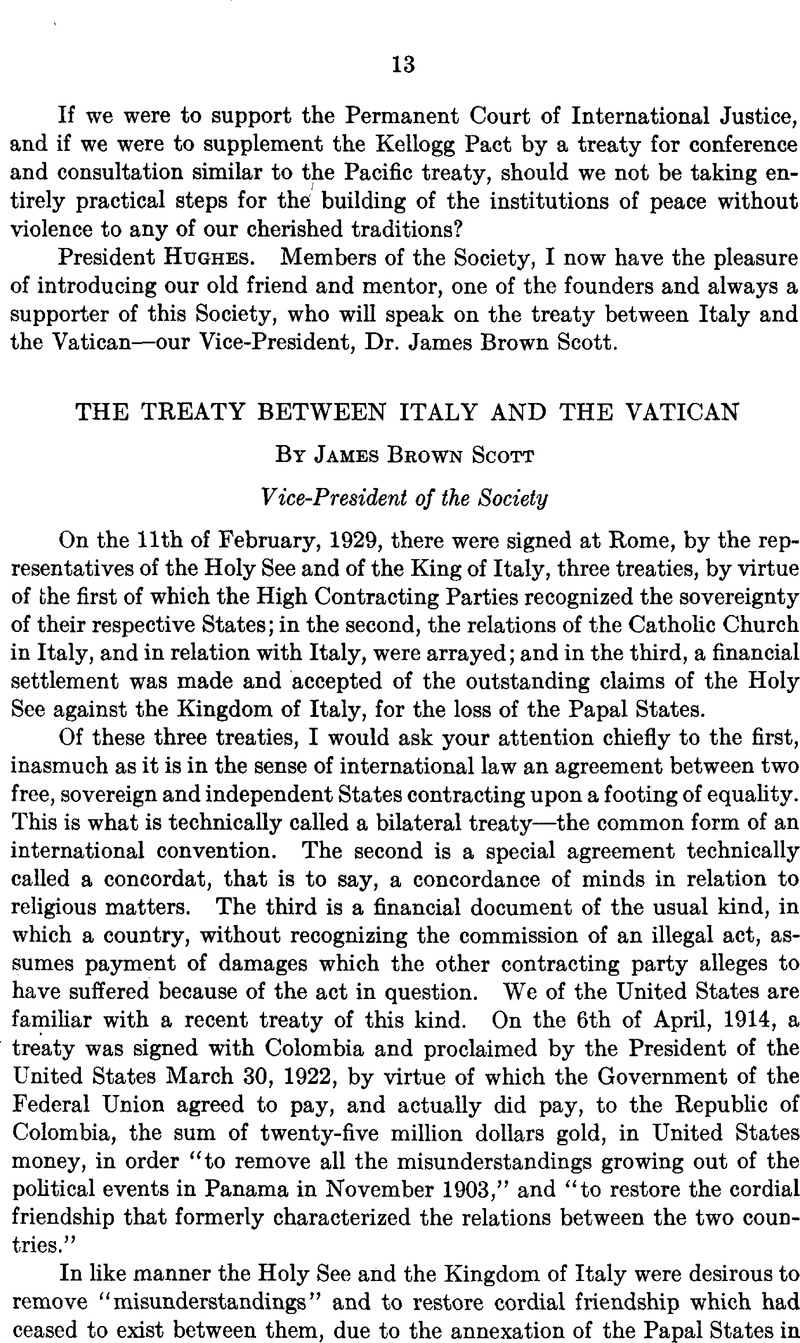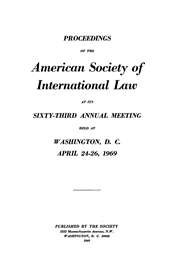Article contents
The Treaty Between Italy and the Vatican
Published online by Cambridge University Press: 27 February 2017
Abstract

- Type
- First Session
- Information
- Copyright
- Copyright © American Society of International Law 1929
References
1 “Italy considers the teaching of Christian Doctrine according to the forms received from the Catholic tradition as the foundation and crown of public education. Therefore Italy consents that the religious teaching now imparted in the elementary schools be further developed in the middle schools according to a programme to be agreed upon between the Holy See and the State. “Such instruction will be given by masters, professors, priests and members of religious orders approved by ecclesiastical authorities and in subsidiary form by lay masters and professors furnished with proper certificates of capacity issued by the diocesan ordinary. “Revocation of the certificate by the ordinary immediately deprives the teacher of authority to instruct. Only textbooks approved by the ecclesiastical authorities will be used in the public schools for such religious teaching.” (Article Thirty-Six.)
"Such instruction will be given by masters, professors, priests and members of religious orders approved by ecclesiastical authorities and in subsidiary form by lay masters and professors furnished with proper certificates of capacity issued by the diocesan ordinary.
"Revocation of the certificate by the ordinary immediately deprives the teacher of authority to instruct. Only textbooks approved by the ecclesiastical authorities will be used in the public schools for such religious teaching." (Article Thirty-Six.)
2 “The Italian State, wishing to reinvest the institution of marriage, which is the basis of the family, with the dignity conformable to the Catholic traditions of its people, recognizes the sacrament of matrimony performed according to canon law as fully effective in civil law.… “Cases concerning nullity of marriage and dispensation from marriage by reason of nonconsummation, are reserved for ecclesiastical tribunals and departments…. “As regards cases of personal separation, the Holy See agrees that thesame be judged by the civil judicial authority.” (Article Thirty-Four.)
"Cases concerning nullity of marriage and dispensation from marriage by reason of nonconsummation, are reserved for ecclesiastical tribunals and departments. . . .
"As regards cases of personal separation, the Holy See agrees that the same be judged by the civil judicial authority." (Article Thirty-Four.)
- 1
- Cited by


